The path to our business growth has been taken in line with economic, social and environmental development
Investing in Brazil’s highway infrastructure in a sustainable manner is part of EcoRodovias’ business strategy and culture, with the focus on themes such as mobility, highway safety, support for regional development, innovations for the sector, climate change, governance and diversity, equity and inclusion. To achieve our goals, we adopt international corporate sustainability standards. Our stock is traded on B3’s Novo Mercado listing segment and we are part of important portfolios and indexes linked to environmental, social and governance practices such as ISE, ICO2 and IDiversa.
LEARN ABOUT OUR PATHS TO SUSTAINABILITY
We have structured the commitments made by EcoRodovias into an ESG agenda and outlined the sustainability pathways that will guide our journey through 2030. These are 10 pathways, with defined goals, to achieve our objectives in the environmental, social, and governance spheres.
To continue on this path towards sustainable development, which culminated in our 2030 ESG agenda, we consulted our internal audience and stakeholders to analyze our material topics, strategic vision, and risk map, as well as the Group’s sustainability policies and regulations. We also used the ESG goals of ASTM’s sustainability plan, our shareholder, as a reference, adapting its premises to the sectoral context, national regulations, and Brazil’s regional characteristics.

OUR TARGETS
EcoRodovias undertakes to pursue targets that are ambitious but necessary to achieve our goal of promoting sustainable development through our operations in Brazil’s highway infrastructure. Therefore, we structured the company’s Agenda ESG 2030 based on 10 pillars – our Paths to Sustainability. For each of them, we set medium- and long-term targets to be achieved through cross-company projects and initiatives that cover all our businesses. To define the targets, we considered the potential of our businesses to contribute to achieving the Sustainable Development Goals (SDG) established by the UN 2030 Agenda.
Climate Strategy
- Reduce Scope 1 and 2 emissions
- By 2026: 25%
- By 2030: 42%
- Reduce Scope 3 emissions
- By 2026: 6%
- By 2030: 11%
- By 2026: 112 electric charging stations along highways
- By 2026: Prepare an Adaptation Plan related to Climate Risks
Biodiversity & Ecosystem
- By 2026: Identify critical areas for conversation of biodiversity in our operations
- By 2030: Plan and execute priority interventions for preservation
- By 2030: 2,600 hectares of planted and/or preserved areas
Circular Economy
- 95% of waste reused or recycled by 2026 and 2030.
Safety
- Reduce fatal traffic accidents (UN Decade of Action for Road Safety 2021-2030)
- By 2030: 50%
- Reduce Non-Fatal Injury Rate for employees
- By 2026: 20%
- By 2030: 50%
Human Capital & DEI
- Women in leadership
- By 2026: 45%
- By 2030: 50%
- Black people in leadership
- By 2030: 35%
- Average training hours of employees
- By 2026: 18.3 hours
- By 2030: 21.9 hours
- Maintain 100% annual employee performance evaluation with inclusion of ESG targets
Communities
- By 2026: Review the company’s social investment strategy by preparing a Master Plan, valuing the regions where EcoRodovias operates from the viewpoint of socio-environmental responsibility aligned with business strategy.
Ethics, Transparency & Integrity
- 95% of employees annually trained on business ethics
- 95% of employees involved in Human Rights training by 2026 and 2030
- Strategic suppliers involved in human rights training
Sustainable Procurement
- Define the criteria, methodology and targets for ranking critical suppliers on ESG by 2025
- 95% of suppliers assessed on ESG themes
- By 2026: strategic suppliers
- By 2028: critical suppliers
Data Protection & Security
- Pursue zero stoppage of critical protection systems due to cybersecurity issues
- 95% of employees trained annually on cybersecurity and data protection
Innovation & Technology
- Implement technologies that ensure digital, resilient and sustainable highways to ensure safe and smooth traffic
- Improve favorability in innovation survey with leadership
- By 2026: 65%
- By 2030: 70%
